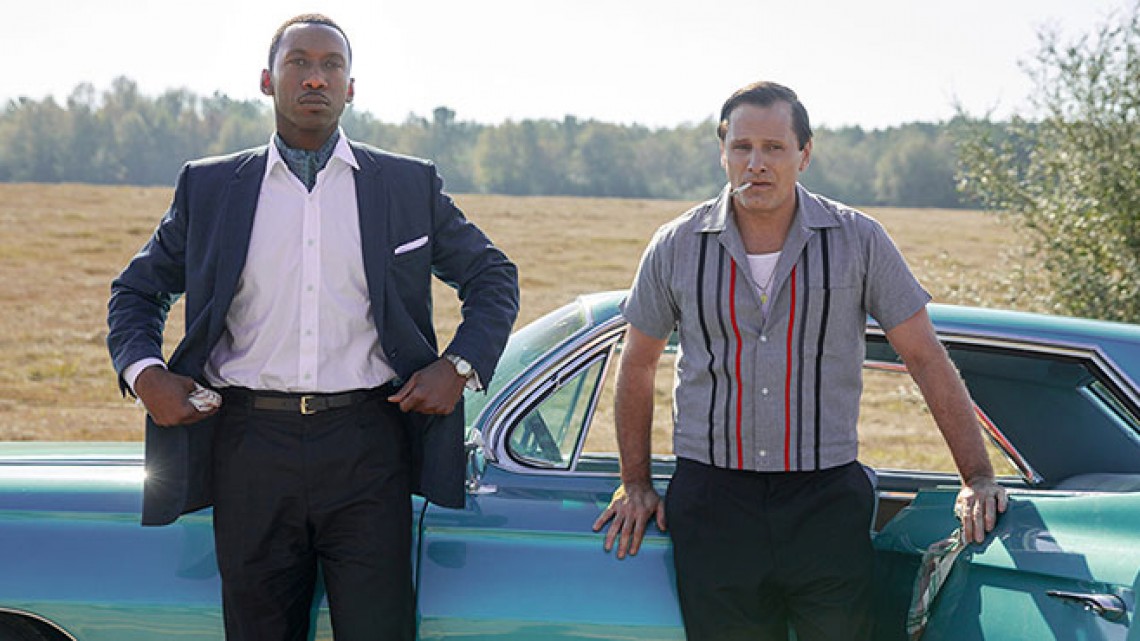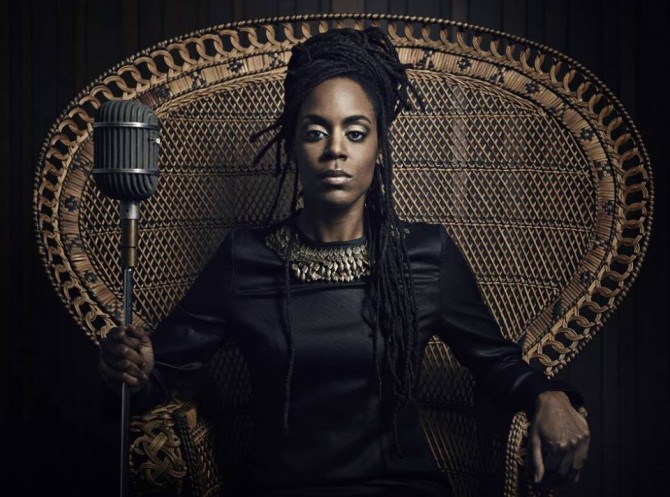
Cornell Cinema hosts a free advance screening for students Nov. 13 of “Green Book,” starring Mahershala Ali and Viggo Mortensen.
Things to Do, Nov. 9-16, 2018
By Daniel Aloi
“The Ancient Law”
Cornell Cinema will present a free screening of “The Ancient Law,” in a new digital restoration and accompanied by live Klezmer music, Nov. 14 at 7 p.m. in Willard Straight Theatre.
The German silent film by E.A. Dupont about Jewish life in 19th century Europe, released in 1923, is a precursor to “The Jazz Singer” and is the story of an orthodox rabbi’s son who wants to be an actor. Pianist Donald Sosin and acclaimed Klezmer violinist Alicia Svigals will perform their newly commissioned score for the film, a hit at the most recent Berlin International Film Festival.
The event is cosponsored with the Jewish Studies Program, the departments of Music and German studies, the Institute for German Cultural Studies, Cornell Hillel and the Sunshine Foundation for Education and the Arts.
Also showing: A free screening of Christopher Nolan’s “Memento” (2001), Nov. 13 at 7 p.m.; and a free advance screening (for students only) of the new film “Green Book,” Nov. 13 at 9:30 p.m. Set in 1962 in the Deep South, the film stars Mahershala Ali as a black pianist on tour and Viggo Mortensen as his driver.
Chilean anthem
Pianist Andrew Zhou performs Frederic Rzewski’s “The People United Will Never Be Defeated!” Nov. 10 at 8 p.m. in Barnes Hall.
The work features 36 variations on the Chilean protest song "¡El pueblo unido, jamás será vencido!”
Zhou is in the Doctor of Musical Arts program at Cornell, engaged in Critical Keyboard Studies. Preceding the performance, Raymond Craib, professor of history, and anthropologist and doctoral student in musicology Sergio Ospina-Romero, M.A. ’17, will discuss the original protest song (by Quilapayún and Sergio Ortega) and Rzewski’s 1975 composition, as well as the Nueva Canción Chilena and student protest movements in Chile in relation to current events.
Voluntary cash donations (suggested: $10 students, $20 general) will be accepted at the door. All proceeds will go to the Young Center for Immigrant Children’s Rights and the American Civil Liberties Union. The event is presented by the Department of Music.
Conversation with Akua Naru
Global hip-hop artist, activist and scholar Akua Naru will be featured in a conversation with associate professor of Africana studies Oneka LaBennett, Nov. 12 at 4:30 p.m. at the Africana Studies and Research Center. The event is free and open to the public and will be followed by a reception.
As an artist, Naru theorizes the experiences of black women through rhyme and music ranging from jazz to soul. She has performed in more than 50 countries on five continents with her band, and has released four albums including “The Miner’s Canary” (2015) and “The Blackest Joy” (2018). She is a fellow at the Hutchins Center for African and African American Research at Harvard University (2018-19) and has lectured at Oxford University, the University of Cologne and Ahfad University for Women in the Sudan.
The event is co-sponsored by the Cornell Hip Hop Collection, the Society for the Humanities, the departments of Music and German studies, the Program in American Studies, the Institute for German Cultural Studies, the Office of Faculty Development and Diversity, the Rose Goldsen Lecture Series and the Feminist, Gender & Sexuality Studies Program.
“Pipeline Politics”
Madelon L. Finkel will discuss the pros and cons of transporting crude oil and natural gas by pipeline in a Chats in the Stacks book talk, Nov. 15 at 4 p.m. in 160 Mann Library.
In her new book, “Pipeline Politics: Assessing the Benefits and Harms of Energy Policy,” Finkel addresses the benefits, limitations and dangers associated with pipelines, and the dangers to human health and the environment posed by spills, leaks and explosions.
Finkel is a professor of health care policy and research and director of the Office of Global Health Education at Weill Cornell Medical College. She also is the author of “Cancer Screening in the Developing World: Case Studies and Strategies from the Field” (2017) and editor of “The Human and Environmental Impact of Fracking: How Fracturing Shale for Gas Affects Us and Our World” (2015).
Public health symposium
The Cornell Symposium on Public Health will be held Friday, Nov. 16, 8:30 a.m. to 5 p.m. in Schurman Hall, lecture halls 4 and 5. To attend, RSVP by Nov. 9. Free refreshments and lunch will be provided; please bring your own reusable utensils and water bottles.
The event focuses on discussions of the pillars of human health – equity, sustainability and engagement – with interdisciplinary panels, speakers and a poster session. Sessions will focus on paving the way to healthy people in healthy communities, finding viable ways to support human and ecosystem health, and projects that have used meaningful engagement as a lever of change.
The symposium is sponsored by the Master of Public Health Program, the Atkinson Center for a Sustainable Future, the Office of Engagement Initiatives, the College of Veterinary Medicine and the Cornell Center for Health Equity.
A dinner and plenary talk will follow on Nov. 16 as part of the One Health Symposium 2018, which continues all day Nov. 17; registration is through Nov. 11. Live-stream registration also is available. Email Josh Balles at jeb527@cornell.edu for more information.
World music fusion
The Cornell Concert Series presents world music by eclectic and virtuosic musicians Béla Fleck on banjo, Edgar Meyer on bass and Zakir Hussain on tabla, Nov. 16 at 8 p.m. in Bailey Hall.
Tickets are $29, $34 and $39 general, $19 for students, available at cornellconcertseries.com.
The artists have garnered more than 20 Grammy Awards among them and bridge the genres of classical, bluegrass and North Indian music.
Media Contact
Get Cornell news delivered right to your inbox.
Subscribe

